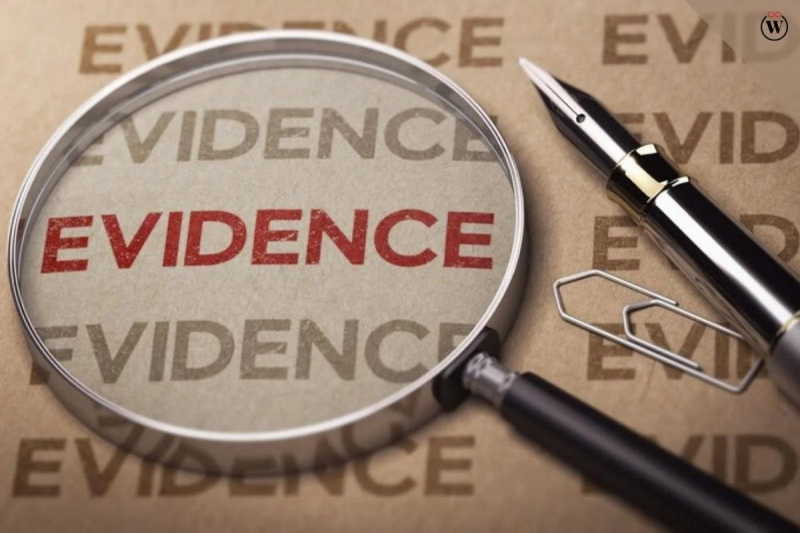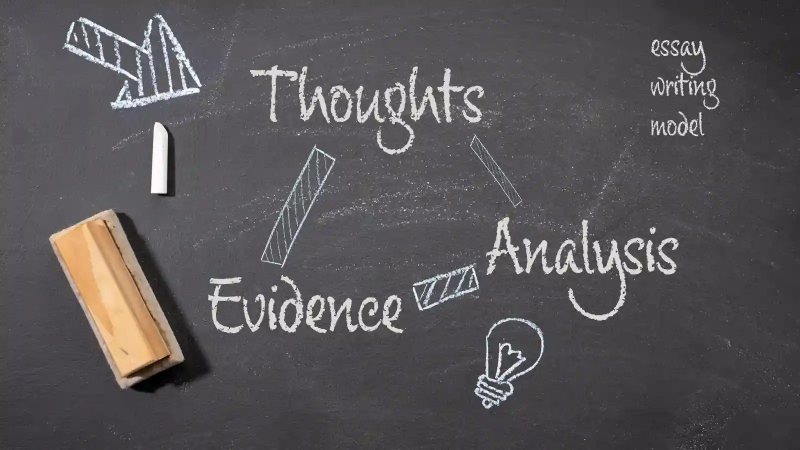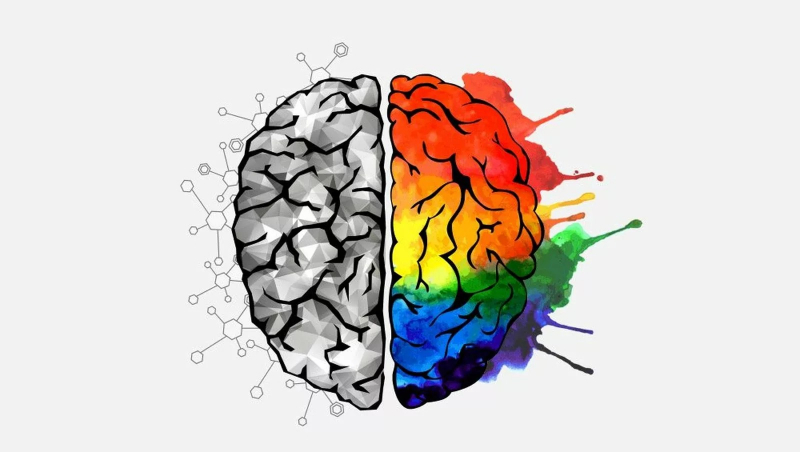Top 10 Best Tips for Writing an Analytical Essay
Mastering the art of writing an analytical essay is crucial for academic success. These tips for writing an analytical essay provide a roadmap for creating ... read more...compelling pieces. Scroll down to gain information!
-
When writing an analytical essay, the establishment of a definitive stance is not only beneficial but also fundamental. This stance serves as the essay's backbone. It guides the analysis to ensure that the exploration of the topic is directed and substantive.
The term 'stance' refers to the writer's perspective or position on the main topic or argument of the essay. This perspective shapes the overall argumentative structure of the text and determines how the writer interprets evidence.
The importance of adopting a clear stance cannot be overstated. Firstly, it provides a focused direction for the essay. Therefore, it allows the writer to craft a coherent and persuasive argument. Secondly, a well-articulated stance helps the reader to understand and follow the essay's line of reasoning. Finally, it facilitates a nuanced exploration of the topic, enabling deep analysis rather than mere summarization.
Writers can employ several strategies to establish and present a stance effectively. They should begin with extensive research to understand the topic deeply. The act of identifying the main themes within the subject area is essential. Writers must craft a thesis statement that encapsulates their stance, ensuring it is specific, arguable, and relevant. Besides, they should link back to this stance throughout the essay by using evidence. It is crucial to select evidence critically that supports the stance and demonstrates its depth.
However, writers often face challenges in taking a stance. A common issue is avoiding committing to a clear position, especially on complex topics. Writers can overcome this by committing to a clear position and building their argument around it. This action acknowledges counterarguments but also demonstrates the superiority of their stance. Another challenge is maintaining consistency in the stance throughout the essay. Writers can address this by regularly revisiting their thesis statement as they write. Each section must contribute to and reinforce the central argument.
In conclusion, a well-defined stance is not merely a component of an analytical essay; it is the essence that drives its development and engages its readers. By understanding the importance of a stance, employing effective strategies, and navigating potential challenges, writers can produce coherent analytical essays.

Screenshot of https://ldaustralia.org/announcements/the-science-of-writing/ Video by The English Language Arts Gallery -
The act of developing a compelling thesis statement is a critical step in analytical essay writing. It provides clarity and direction for both the writer and the reader.
The term 'thesis statement' refers to a sentence or two that summarizes the central point or argument of an essay. It is the crux of the essay's argument and sets the tone for the entire piece.
The importance of a compelling thesis statement cannot be overstated. It serves as a roadmap for the essay. Since it guides the writer's thoughts and ensures that all elements of the essay align with the central argument. For the reader, a clear thesis statement provides an immediate understanding of the essay's purpose and direction. It makes the essay more engaging and easier to follow.
Strategies for developing a compelling thesis statement involve several key steps. Writers must first thoroughly understand the essay's topic and the main arguments surrounding it. They should reflect on the angle they wish to adopt. A compelling thesis statement is specific, clearly stating the writer's position. In addition, it is also debatable, presenting an argument that others might challenge. In general, writers should ensure their thesis statement is concise in a direct manner. It should appear early in the essay, usually at the end of the introduction, to establish the essay's direction from the outset.
Writers may face challenges in crafting a compelling thesis statement. One common issue is making the thesis too broad or too vague, which can confuse the reader. Writers can overcome this by narrowing their focus and specifying their arguments. Another challenge is ensuring the thesis remains relevant throughout the essay. Writers should continuously refer back to their thesis statement as they write. They must ensure each paragraph supports the central argument.
In conclusion, a compelling thesis statement is crucial for a successful analytical essay. It provides direction, clarity, and focus, guiding both the writer and the reader through the essay. By understanding its importance, employing careful strategies, and addressing potential challenges, writers can craft effective thesis statements.

Screenshot of https://www.inc.com/wanda-thibodeaux/you-should-be-writing-every-day-heres-why-and-how-to-do-it.html Video by Scribbr -
Another tip for writing an analytical essay is to organize ideas logically. This organization ensures that the essay flows coherently and that each point builds upon the last in a meaningful way.
The term logical organization indicates the structured arrangement of ideas and arguments in a sequence that makes sense to the overall argument of the essay. It involves placing information in a specific order that best supports the thesis statement.
The importance of this tip lies in its ability to guide the reader through the essay's argument smoothly. A logically organized essay facilitates understanding. Since it makes the argument more compelling and easier to follow. Moreover, it helps the writer emphasize key points. Each piece of evidence is also presented and contributes directly to the overall thesis. Without this clear structure, essays can become a collection of unrelated points, confusing the reader.
Strategies for effectively organizing ideas begin with planning. Before writing, you should create a detailed outline that includes the thesis, main points, and evidence. This outline should reflect the logical flow of the argument, with each point leading naturally to the next. Start with an introduction that sets the stage for the argument, followed by body paragraphs that present each point in a clear, orderly manner. Besides, you also need to use transition words and phrases to connect ideas and indicate the relationship between them. It's also important to conclude with a strong summary that reinforces the thesis.
Despite these strategies, writers may encounter challenges in maintaining logical organization. One common issue is losing track of the main argument amidst a multitude of points. To address this, writers should regularly refer back to their outline and thesis statement while writing. They must ensure that each point directly supports the central argument. Another challenge is ensuring smooth transitions between points. Overcoming this involves using transitional phrases and revising sections where the flow between ideas feels abrupt.
In summary, the logical organization of ideas is a fundamental aspect of writing an effective analytical essay. It enhances the clarity of the argument. By planning carefully, referring back to the central thesis, and ensuring smooth transitions, writers can overcome challenges and create well-organized.

Screenshot of https://www.planetspark.in/blogs/logical-thinking-skilleverything-that-you-should-know Video by Aimee Shattock -
Another tip, supporting your analysis with concrete evidence is crucial in analytical essay writing. This support strengthens your arguments, making them more persuasive and credible.
The term 'concrete evidence' refers to detailed examples, information, or statistics that directly support your points. This evidence can come from various sources, including academic journals, books, credible websites, and statistical data.
The importance of concrete evidence lies in its ability to substantiate your arguments. It transforms your analysis from a series of opinions into a fact-based discussion. Concrete evidence provides the proof needed to convince readers of your stance. Without it, your essay may appear unsubstantiated, regardless of how well you articulate your ideas.
Strategies for effectively supporting your analysis with concrete evidence involve several key steps. Begin by conducting comprehensive research to gather a wide range of evidence related to your topic. As you sift through sources, you should look for specific examples, statistics, quotes, and studies. All of them directly relate to your main points. When writing, you need to integrate this evidence seamlessly into your essay. Furthermore, you must explain the relevance of the evidence and how it bolsters your argument. Always remember to cite all sources appropriately to maintain credibility and avoid plagiarism.
Writers may encounter challenges in using concrete evidence. One common issue is finding relevant evidence that directly supports specific points. To address this, it's crucial to refine your research methods. A useful advice is to focus on keywords and phrases directly related to your argument. Moreover, using a variety of databases to uncover the most pertinent information is helpful. Another challenge is integrating evidence smoothly without disrupting the flow of the essay. Overcoming this requires careful organization. You should outline where and how you'll incorporate each piece of evidence before you begin writing.
In summary, supporting your analysis with concrete evidence is essential for a compelling analytical essay. It provides the foundation upon which your arguments are built. By conducting thorough research, carefully selecting and integrating evidence, and addressing potential challenges, you can enhance the overall impact of your essay.

Photo by Olivier Le Moal on iStock https://issuu.com/952788/docs/what_is_the_importance_of_contract_to_business Video by David Taylor -
The next tip is to provide in-depth analysis. It plays a central task in writing an analytical essay. This approach involves going beyond surface-level observations to offer a deeper, and more comprehensive understanding of the topic.
The term 'in-depth analysis and interpretation' refers to the thorough examination and explanation of how and why evidence supports the thesis. It's about making connections between the evidence and the argument, discussing the significance of the findings, and offering insights that extend beyond the obvious.
The importance of this deep analysis lies in its ability to engage readers and offer them new perspectives. A detailed examination makes the essay more than just a report. It becomes a thoughtful, compelling argument. In-depth analysis demonstrates the writer's critical thinking skills. In particular, it shows the ability to describe and interpret various aspects of the topic. Without this level of analysis, essays can become superficial.
Strategies for providing in-depth analysis and interpretation start with asking the right questions about the evidence and the topic. Why is this piece of evidence significant? How does it relate to the broader argument? What are the implications of this finding? Writers should look for patterns, contrasts, and contradictions in the evidence. Then they should discuss these elements in detail. They should explain the reasoning behind their interpretations, making the thought process clear to the reader.
Writers may face challenges in offering in-depth analysis, such as the tendency to summarize rather than analyze. To overcome this, they should focus on interpretation, not just description. Another challenge is ensuring the analysis remains relevant to the thesis. Writers can address this by continually tying their analysis back to the main argument. This action ensures that each point made advances their overall case.
In summary, providing in-depth analysis and interpretation is crucial for crafting a compelling analytical essay. It transforms an analytical essay from a mere report to a thoughtful exploration of the topic. By asking critical questions, discussing the significance of evidence, and addressing potential challenges, writers can offer profound insights to their essays.

Screenshot of https://subplotter.com/thoughts-evidence-and-analysis/ 
Screenshot of https://www.datapine.com/blog/data-interpretation-methods-benefits-problems/ -
An enhanced skill in analytical essay writing is to showcase critical thinking. This skill involves the objective evaluation and synthesis of information to form a well-reasoned argument.
Critical thinking skills enable writers to evaluate issues to form judgments. These skills involve questioning assumptions, distinguishing between facts and opinions, and logically connecting different ideas.
The importance of showcasing critical thinking lies in its ability to deepen the understanding of the topic. It allows the writer to present a more convincing argument and demonstrates an engagement with the topic beyond a superficial level. Critical thinking adds depth to an essay, making the argument more persuasive and the essay more insightful. It indicates that the writer has not only understood the material but has also discussed it within a broader context.
Effective strategies for showcasing critical thinking include questioning the topic's every aspect. Writers should not accept information at face value but consider its source, context, and implications. They should identify connections between different pieces of information. They also should consider how these relate to their argument. It is important to include the rationale behind analyses and the processes leading to conclusions. Writers should also consider potential counterarguments and address them, explaining why their argument is more robust.
However, writers may encounter challenges in showcasing critical thinking. A common issue is the tendency to summarize information rather than analyze it. Writers can overcome this by actively engaging with the material, asking questions, and challenging assumptions. Another challenge is maintaining a focused argument amid complex analysis. Writers can address this by consistently referring back to their thesis statement. They must ensure all critical analysis remains relevant and contributes to their overall argument.
In conclusion, showcasing critical thinking skills significantly strengthens an analytical essay. It demonstrates the writer's ability to think beyond the obvious. By questioning assumptions, making connections, and addressing counterarguments, writers can effectively create persuasive essays.

Screenshot of https://tg-vinaarks.com/tintuc/critical-thinking-la-gi-lam-the-nao-de-ren-luyen-critical-thinking-o-moi-nguoi.html Video by Talent and Skills HuB -
Crafting a well-structured essay is essential for effective communication and persuasion in analytical writing. This process involves organizing thoughts in a logical sequence that enhances the essay's overall clarity.
Cohesion and structure refer to the overall unity of an essay. Cohesion ensures that each part of the essay connects with others in a meaningful way. A good structure provides a clear path for the reader to follow. It enhances the understanding and impact of the arguments presented.
The importance of a cohesive essay lies in its ability to guide the reader through the argument smoothly. A structured approach makes the essay easier to follow. It helps to hold the reader's attention. In addition, a well-structured essay ensures that each point contributes to the development of the thesis. Therefore, it prevents the essay from becoming a disjointed collection of ideas. Cohesion and structure are crucial for making the essay's argument more persuasive.
Effective strategies for crafting a cohesive essay begin with detailed planning. Writers should outline the essay before writing. It includes establishing a clear thesis and deciding on the main points and subpoints. They should consider the most logical order for presenting their points. It's effective to ensure that each one flows naturally to the next. Transition words and phrases are crucial for maintaining this flow. Besides, writers should revise their essays multiple times, paying particular attention to the organization and flow of the text. As needed they should make adjustments to enhance clarity.
Writers may face challenges in achieving cohesion and structure. One common issue is creating a logical flow of ideas. Writers can overcome this by continuously referring to their outline to make sure each paragraph directly contributes to their central argument. Another challenge is ensuring that the essay remains focused on the thesis statement. Writers can address this by regularly revisiting their thesis and main points. They check that all content is relevant to the argument.
In summary, crafting a cohesive and well-structured essay is vital for effective analytical writing. It enhances the essay's clarity, persuasiveness, and readability. By carefully planning, using transitions, and continuously refining their work, writers can create well-organized essays.

Screenshot of https://www.organimi.com/hierarchical-vs-flat-organizational-structure-with-pros-cons/ 
Screenshot of https://www.science.org/content/article/nonnative-speaker-i-struggled-write-scientific-papers-english-here-s-how-i-learned -
Another critical component of analytical essay writing is to conclude your arguments effectively. This conclusion serves as the final opportunity to reinforce your thesis. It also leaves a lasting impression on the reader.
The term 'effective conclusion' refers to a final section that succinctly summarizes the main points, reinforces the thesis, and provides a sense of closure. It should not introduce new information but rather reflect on what has been presented.
The importance of an effective conclusion lies in its ability to synthesize the main points, reiterate the central argument, and demonstrate the overall significance of the discussion. A strong conclusion leaves the reader with a clear understanding of the essay's purpose and the writer's perspective. It can also evoke further action by suggesting broader implications or posing questions related to the topic.
Strategies for concluding your arguments effectively include summarizing the key points made throughout the essay. Writers should emphasize how these points collectively support the thesis. This action provides a comprehensive overview of the argument. It's also effective to reflect on the broader implications of the argument. Since it suggests how the discussion relates to further areas of research. However, writers should avoid introducing entirely new ideas or evidence in the conclusion. Since this can confuse the reader and dilute the impact of the argument.
Writers may simply repeat the introduction or list the main points without synthesizing them. To overcome this, they should focus on summarizing the argument's key aspects in a way that highlights their significance and the logical progression of the essay. Another challenge is providing a sense of closure without ending abruptly. Or they leave important questions unanswered. Writers can address this by thoughtfully reflecting on the implications of the argument and suggesting directions for future research.
In summary, concluding your arguments effectively is crucial for reinforcing the essay's thesis. By summarizing key points, reflecting on broader implications, and avoiding new information, writers can craft strong conclusions that synthesize and elevate their arguments.

Screenshot of https://news.northeastern.edu/2016/10/18/take-5-tips-to-sharpen-your-writing-skills/ Video by Aimee Shattock -
Balancing creativity with formality is an essential skill in analytical essay writing. This balance allows the writer to present their arguments engagingly while maintaining the academic rigor of formal writing.
The term 'balancing creativity with formality' refers to the ability to inject personal insight into an essay while adhering to the conventions expected in academic writing. It involves finding a middle ground where innovative ideas enhance the essay without undermining its formal structure.
The importance of this balance lies in its potential to enhance the reader's engagement, also the essay's overall impact. Creativity can make an essay more interesting and memorable. It helps to convey complex ideas in a relatable manner. However, maintaining formality ensures that the essay remains focused, coherent, and respectful of academic standards. This balance helps to establish the writer's credibility and authority on the subject while keeping the reader interested.
Strategies for balancing creativity with formality include understanding the expectations of academic writing and the essay's audience. Writers should familiarize themselves with the appropriate style for their subject and academic level. They can then introduce creativity through the use of compelling examples, analogies, or a unique narrative style. All of them complement the formal structure. It's also effective to use a clear voice that reflects the writer's perspective while remaining respectful of academic conventions.
Writers may face challenges in striking this balance. In particular, they overuse informal language or creative elements that detract from the essay's formality. To overcome this, writers should critically evaluate their work. All creative aspects enhance rather than overshadow the academic content. Another challenge is adhering too rigidly to formal structures, making the essay difficult to follow. Writers can address this by deliberately incorporating elements that showcase their unique voice, as long as they support the overall argument.
In summary, balancing creativity with formality is crucial for writing a compelling analytical essay. By respecting the conventions of academic writing while introducing personal insight, writers can create engaging essays that resonate with readers.

Screenshot of https://www.teamwork.com/blog/balance-creativity-and-productivity/ 
Screenshot of https://www.inc.com/gene-hammett/the-notion-of-work-life-balance-is-unrealistic-heres-a-better-way-to-see-it.html -
Our final tip, revising your work meticulously, is a critical final step in analytical essay writing. This process involves careful examination of the content, structure, and style of the essay to ensure clarity, coherence, and correctness.
The term 'meticulous revision' refers to the detailed review of an essay to improve its overall quality and effectiveness. It goes beyond basic proofreading. It addresses issues related to argumentation, structure, evidence, and writing style.
The importance of meticulous revision lies in its impact on the quality of the essay. Even the most insightful arguments can lose their effectiveness if they are not coherently presented. Revision allows writers to refine their arguments, clarify their points, and eliminate any errors or inconsistencies. It also provides an opportunity to enhance the overall flow of the essay, making it more engaging for the reader.
Strategies for meticulous revision involve several stages. Initially, you should take a break after writing the first draft to return with a fresh perspective. Then, you read the essay multiple times, focusing on different aspects each time—first on the overall structure, then on paragraph coherence, and finally on sentence-level clarity and grammar. In addition, you look for areas where the argument can be strengthened and consider whether the evidence presented effectively supports the thesis. Pay attention to transitions with each part of the essay smoothly leads to the next. Finally, you need to proofread for spelling, punctuation, and grammatical errors.
Writers may face challenges in revising their work, In particular, they are so familiar with their text that they overlook mistakes or areas for improvement. To overcome this, writers can ask peers or mentors to review their essays and provide feedback. Another challenge is resisting the temptation to settle for a 'good enough' draft due to time constraints or fatigue. Setting a revision schedule and allowing ample time for multiple review rounds can help address this.
In summary, meticulous revision is crucial for producing a high-quality analytical essay. It allows writers to refine and polish their work. By approaching revision as a multi-stage process and seeking feedback from others, writers can overcome challenges and ensure their essays are of the highest possible standard.

Screenshot of https://www.thetutorteam.com/revision/5-ways-to-revise-for-exams/ Video by Reem Atallah































